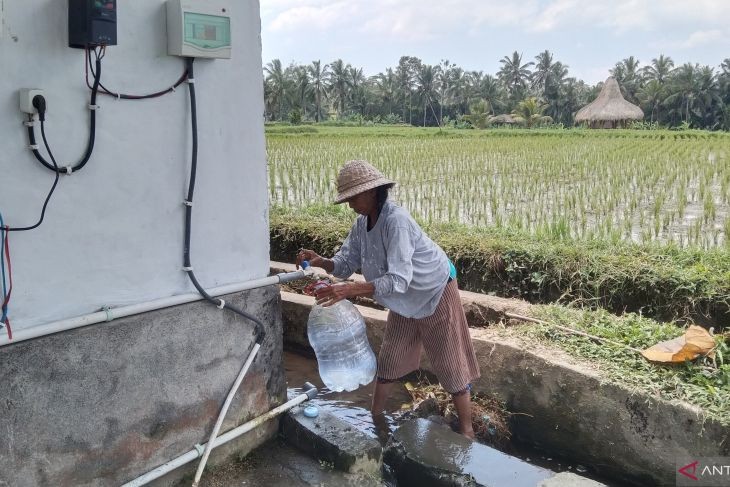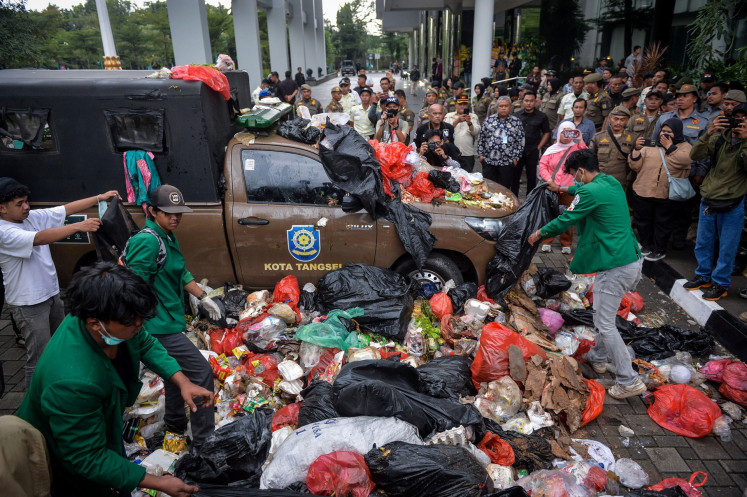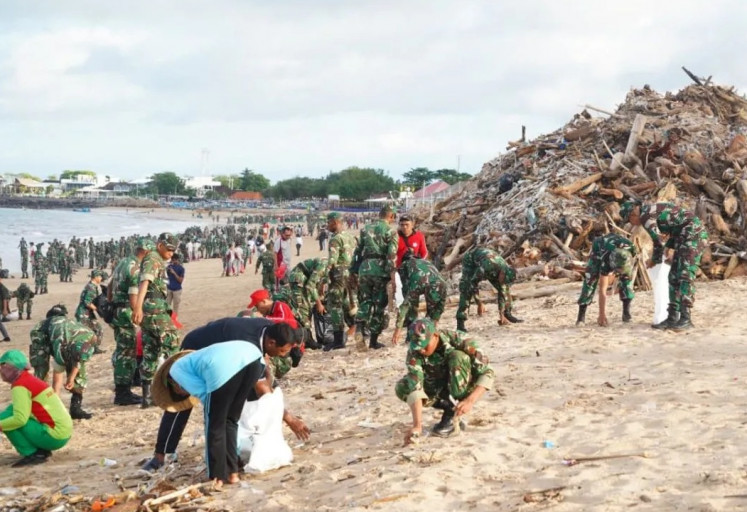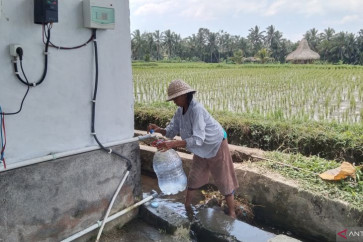Popular Reads
Top Results
Can't find what you're looking for?
View all search resultsPopular Reads
Top Results
Can't find what you're looking for?
View all search resultsUniting to tap into water's potential for peace
The precious resource is essential for life, but 2 billion people around the world still lack access to safe drinking water, with 500 million residing in Asia alone. Closer to home, around 18 million Indonesians are still deprived of access to safe water.
Change text size
Gift Premium Articles
to Anyone
 A farmer refills an empty jug with water from a community well in Keliki village, Gianyar regency, Bali, on Sept. 2, 2023. The well uses a pump that runs on energy from a solar power plant that was provided by state oil and gas giant Pertamina to support Indonesia’s transition to clean energy. (Antara/Dewa Ketut Sudiarta Wiguna)
A farmer refills an empty jug with water from a community well in Keliki village, Gianyar regency, Bali, on Sept. 2, 2023. The well uses a pump that runs on energy from a solar power plant that was provided by state oil and gas giant Pertamina to support Indonesia’s transition to clean energy. (Antara/Dewa Ketut Sudiarta Wiguna)
I
n today’s complex tapestry of global challenges, ensuring water security and sustainability stands out as among the most urgent. The precious resource is essential for life, but 2 billion people around the world still lack access to safe drinking water, with 500 million residing in Asia alone. Closer to home, around 18 million Indonesians are still deprived of access to safe water. While a third of Indonesia’s river basins are already under stress year-round, water demand continues to rise rapidly under interconnected pressures including population growth and urbanization.
Against the backdrop of a worsening climate crisis, the need to scale collective water action has never been more pressing. Yet water cooperation offers a transformative opportunity to go beyond mere access and security, promoting peace, prosperity and sustainable development for all.
However, addressing these challenges requires more than individual efforts. As we commemorate this year's World Water Day, the theme “Leveraging Water for Peace” aptly reminds us of the value of water and the transformative potential of collaboration. By working collectively on knowledge and capacity building, financing and innovation, we can unlock the full potential of water as a catalyst for progress.
Knowledge-sharing for capacity development
Accelerating knowledge- and information-sharing while building new skills is fundamental for sustainable water management. Sharing insights and experiences fosters collaboration and a collective commitment to water stewardship, ensuring that we remain agile in the face of evolving challenges.
For instance, cities that stand at the forefront of climate change impacts can tap into opportunities to connect to identify common needs and priorities, exchange experiences and develop adaptation and resilience strategies. Platforms like the C40 Cities Climate Leadership Group facilitate knowledge exchange between major cities, enabling them to implement meaningful and sustainable local climate actions that ultimately aim to address the global threat of climate change.
C40’s Water Safe Cities project exemplifies this collaborative approach, bringing together cities and expert advisors to develop research and solutions for urban water-related risks. The project leverages a broad network of public and private advisors and engages cities in exchanging best practices, ensuring informed and actionable research.


















